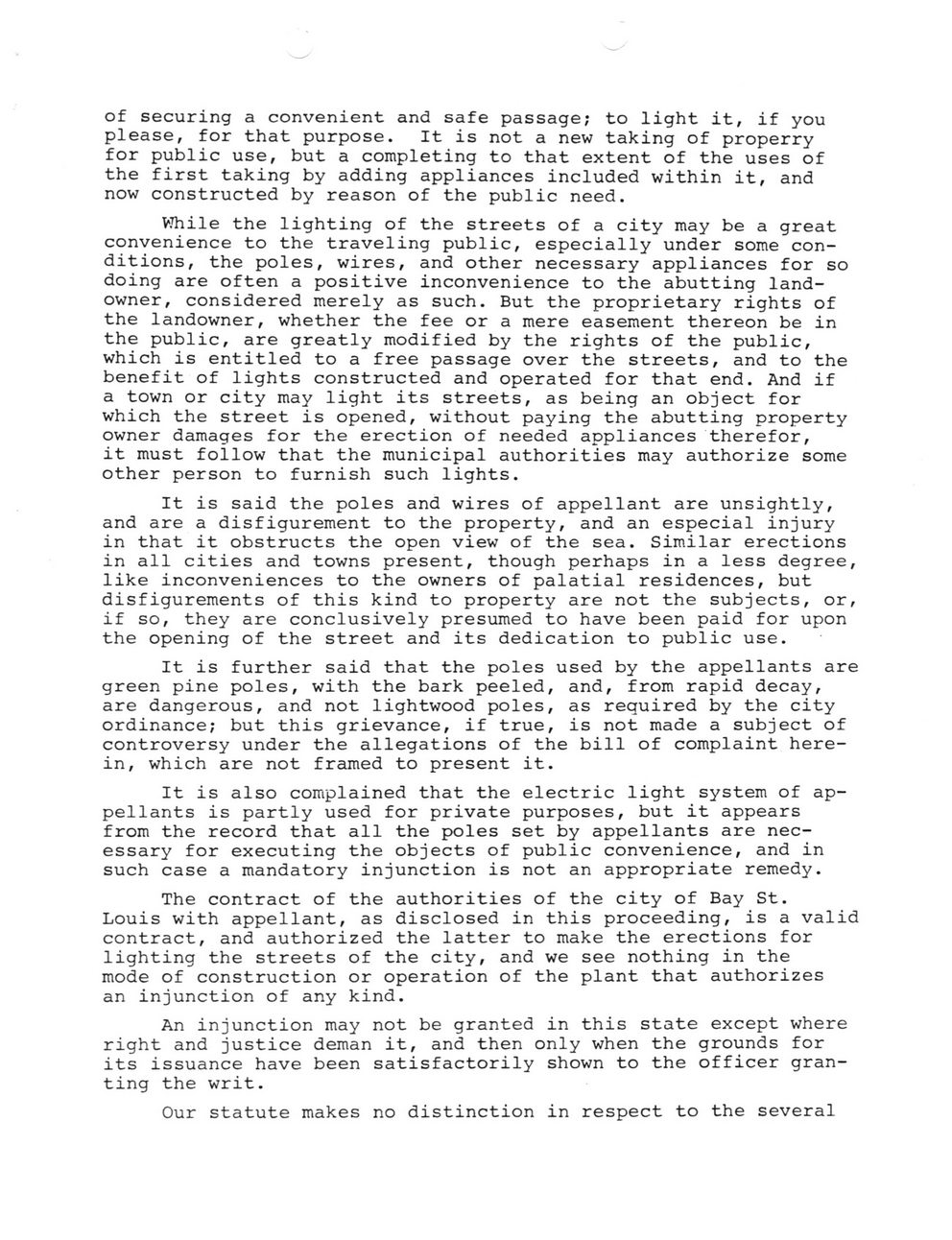This text was obtained via automated optical character recognition.
It has not been edited and may therefore contain several errors.
of securing a convenient and safe passage; to light it, if you please, for that purpose. It is not a new taking of properry for public use, but a completing to that extent of the uses of the first taking by adding appliances included within it, and now constructed by reason of the public need. VThile the lighting of the streets of a city may be a great convenience to the traveling public, especially under some conditions, the poles, wires, and other necessary appliances for so doing are often a positive inconvenience to the abutting landowner, considered merely as such. But the proprietary rights of the landowner, whether the fee or a mere easement thereon be in the public, are greatly modified by the rights of the public, which is entitled to a free passage over the streets, and to the benefit of lights constructed and operated for that end. And if a town or city may light its streets, as being an object for which the street is opened, without paying the abutting property owner damages for the erection of needed appliances therefor, it must follow that the municipal authorities may authorize some other person to furnish such lights. It is said the poles and wires of appellant are unsightly, and are a disfigurement to the property, and an especial injury in that it obstructs the open view of the sea. Similar erections in all cities and towns present, though perhaps in a less degree, like inconveniences to the owners of palatial residences, but disfigurements of this kind to property are not the subjects, or, if so, they are conclusively presumed to have been paid for upon the opening of the street and its dedication to public use. It is further said that the poles used by the appellants are green pine poles, with the bark peeled, and, from rapid decay, are dangerous, and not lightwood poles, as required by the city ordinance; but this grievance, if true, is not made a subject of controversy under the allegations of the bill of complaint herein, which are not framed to present it. It is also complained that the electric light system of appellants is partly used for private purposes, but it appears from the record that all the poles set by appellants are necessary for executing the objects of public convenience, and in such case a mandatory injunction is not an appropriate remedy. The contract of the authorities of the city of Bay St. Louis with appellant, as disclosed in this proceeding, is a valid contract, and authorized the latter to make the erections for lighting the streets of the city, and we see nothing in the mode of construction or operation of the plant that authorizes an injunction of any kind. An injunction may not be granted in this state except where right and justice deman it, and then only when the grounds for its issuance have been satisfactorily shown to the officer granting the writ. Our statute makes no distinction in respect to the several

Bowers, Eaton J. Echos-From-the-Past-002